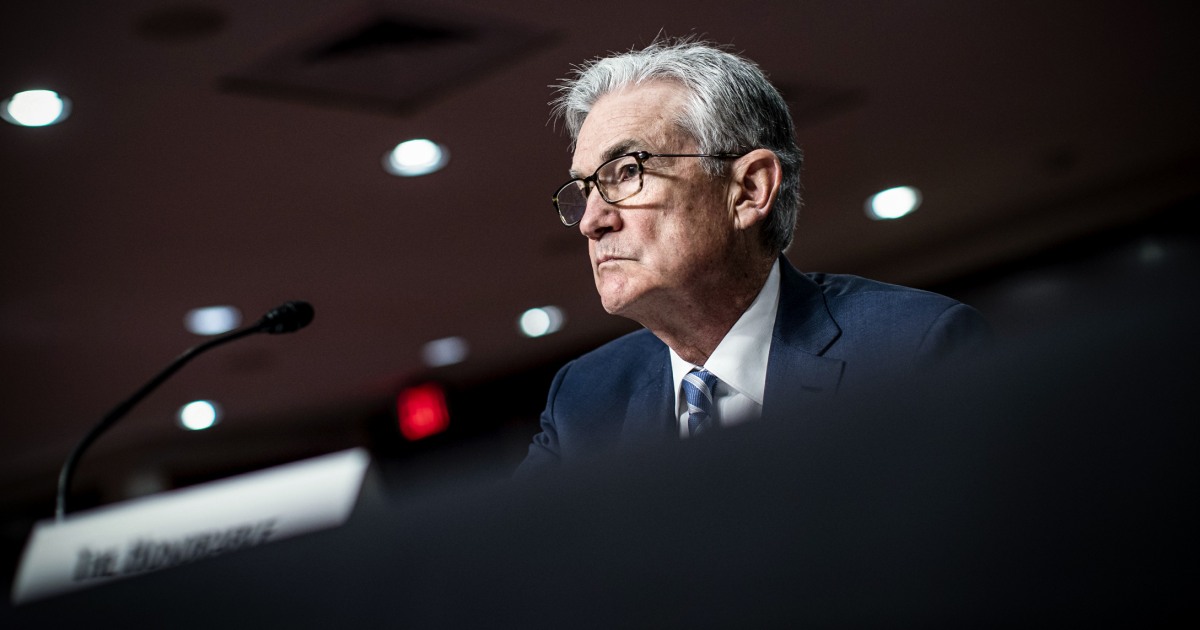Wall Street stumbled on Tuesday, with the Dow Jones Industrial Average falling by more than 600 points after Federal Reserve Chairman Jerome Powell said he was considering withdrawing support for the economy at an even faster pace.
The Fed chief’s comments come amid already-heightened investor concerns about the omicron variant of the coronavirus that sparked the biggest market selloff this year, on Black Friday.
All three major averages fell to session lows Tuesday after Powell told the Senate Committee on Banking, Housing, and Urban Affairs that in light of a “very strong” economy, “it is therefore appropriate in my view to consider wrapping up the taper of our asset purchases … perhaps a few months sooner.”
The Federal Open Market Committee, the central bank’s policymaking arm, next meets on Dec. 14-15. After the group’s last meeting, Powell announced that the Fed would start to taper its asset purchases in December. Those purchases represent one of the central bank’s biggest interventions undertaken in the wake of the pandemic.
Since June 2020, the central bank has been purchasing $120 billion in bonds — $80 billion in Treasuries and $40 billion in mortgage-backed securities — every month to add liquidity and keep the financial system working efficiently. Powell said earlier this month that the Fed would be reducing these purchases by around $15 billion a month, but noted that the bank was “prepared to adjust the pace of purchases if warranted by changes in the economic outlook.” He echoed that sentiment on Tuesday, telling lawmakers, “you’ll see our policy continue to adapt.”
Powell’s comments indicate a shift in outlook for the Fed, which has insisted for months that inflationary pressures are “transitory.” Powell acknowledged Tuesday that it was time to “retire” that word, and noted that supply-side pressures — shipping and logistics snarls that have slowed global growth during the pandemic and pushed up prices for everything from cars to groceries — had been greater than expected.
A faster pace of tapering could lead to an earlier discussion among Fed policymakers about hiking its benchmark interest rates, which the central bank slashed to almost zero in March last year as the pandemic hit the U.S. economy.
Lucy Bayly is the business editor for NBC News.





